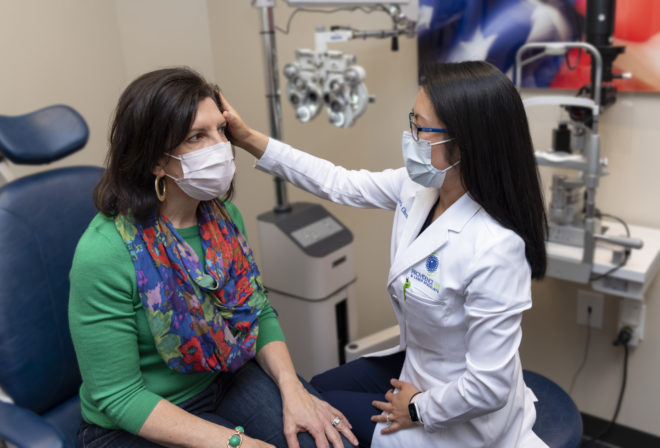
You may have been irritated by an inflamed bump on your eyelid before. They can be uncomfortable and potentially harmful, but equally as concerning is not knowing what exactly it is. Learn what a chalazion is, what makes it different from a stye, how to treat a chalazion, and how it can impact your LASIK surgery options.
A chalazion is an inflamed bump that results from an obstructed meibomian gland (an oil-producing gland in the eyelid). The most common risk factors are blepharitis, rosacea, and prior chalazia.
While often used interchangeably, chalazia and styes are not quite the same thing. A stye is also an inflamed bump, but originates from an eyelash follicle (rather than a Meibomian gland) and is more frequently associated with a bacterial infection. At times, chalazia and styes can be difficult to distinguish.
A chalazion itself is not an emergency – however chalazia can become bacterially infected and lead to cellulitis, or a skin infection. Cellulitis requires urgent evaluation as this infection can spread deeper into the eye socket and towards the eye without antibiotic treatment.
Start warm compresses and gentle scrubbing along the eyelid margin - at least 10 minutes in the morning and 10 minutes at night, more if you can. If it persists, we have additional treatment options including eye drops, oral medication, steroid injection, laser procedure, and minor surgery.
This can vary. The sooner one can start warm compresses and lid scrubs, the better chance at spontaneous resolution. If it persists for more than a couple weeks, it may require additional intervention.
Unfortunately, yes, it’s possible for a chalazion to come back. There are 20-40 meibomian glands per eyelid, and each of these can become clogged and lead to a chalazion.
Possibly – but it’s best to confirm with Dr. Nunnery during your LASIK consultation. A chalazion can physically press on the surface of the eye and induce astigmatism, or falsely alter a refraction/glasses prescription, and an accurate refraction is essential prior to LASIK surgery.
Call and schedule an appointment with Dr. Valerie H. Chen.